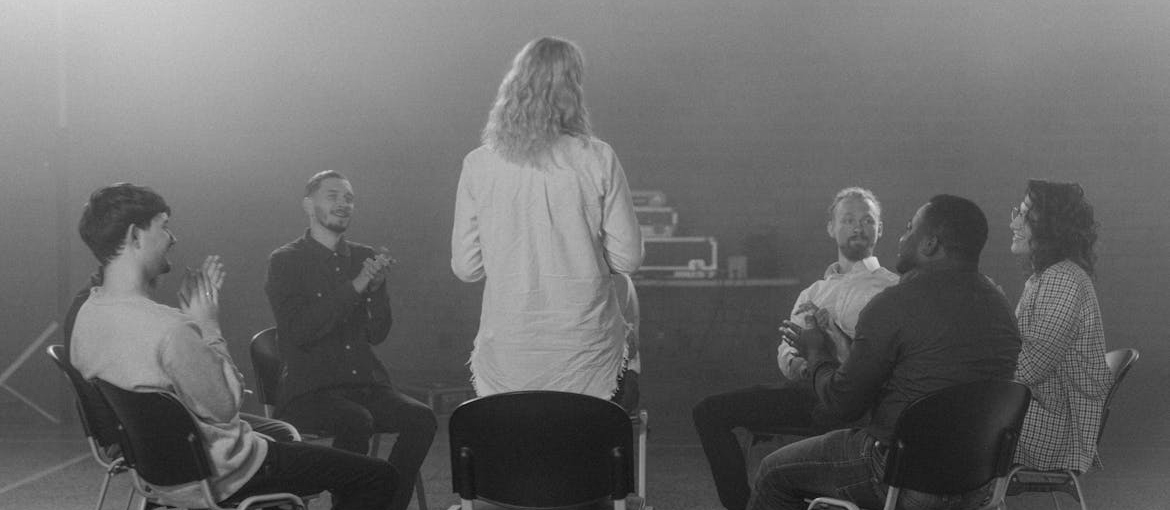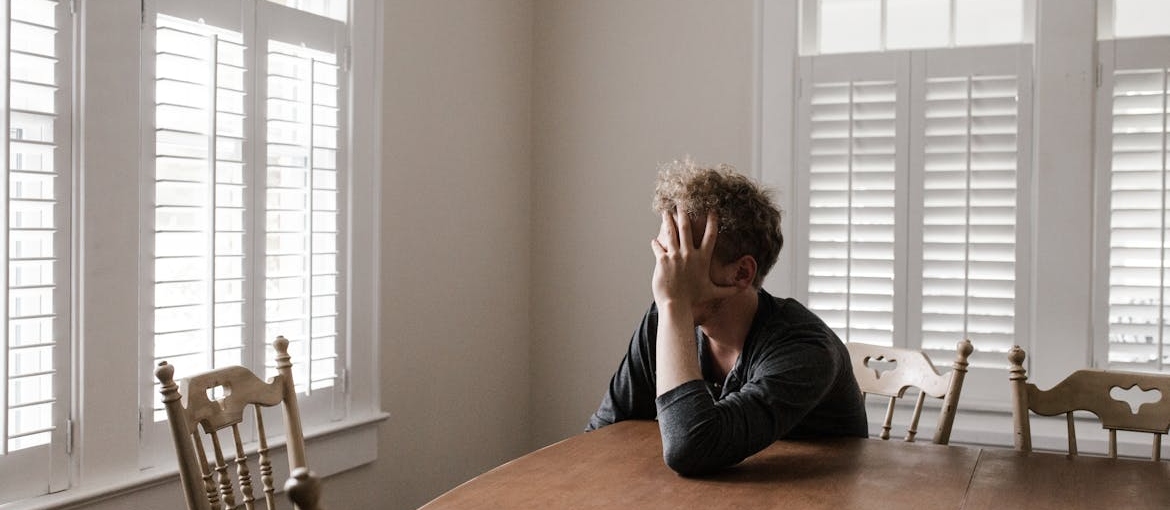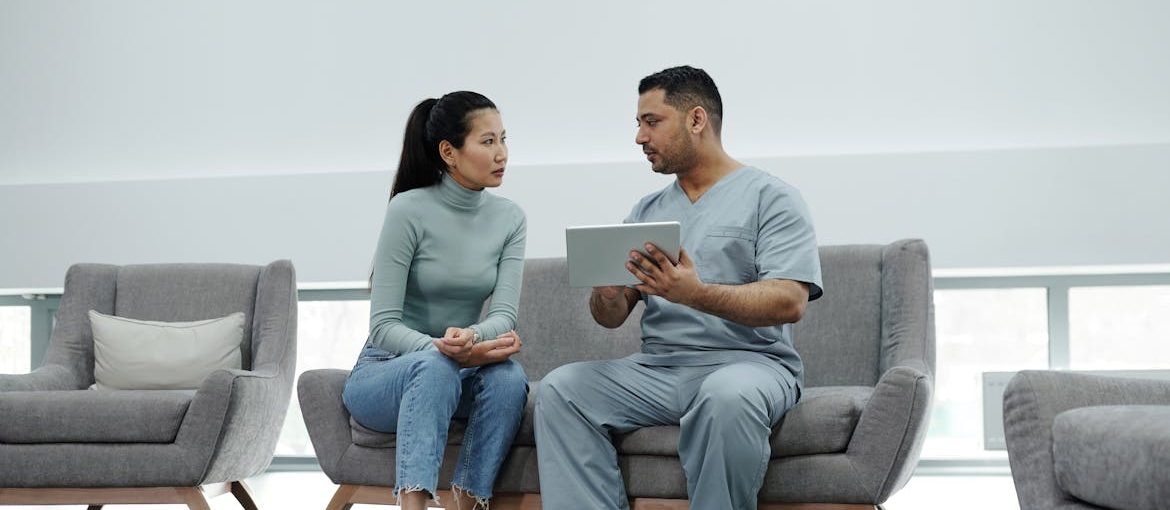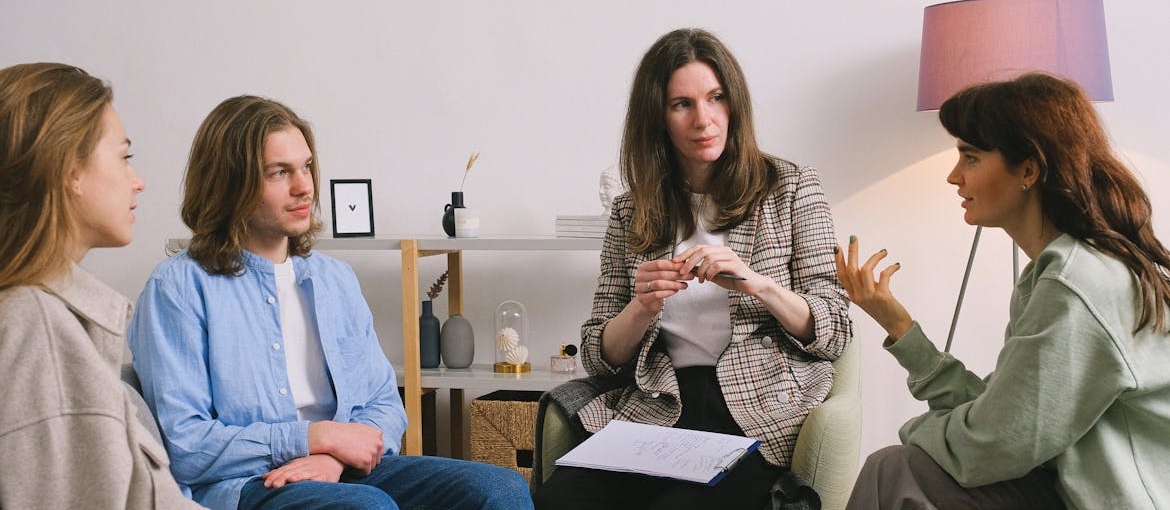Recovery can feel lonely, especially when you’re trying to manage both addiction and mental health challenges. That’s where mental health support groups can make a real difference. Talking with others who’ve faced similar struggles helps you feel seen, understood, and supported. These groups create a safe place to share feelings, learn coping tools, and build hope for lasting change. Many addiction treatment centers in West Virginia now include group support as part of their recovery programs, helping people rebuild their confidence and connection with others. You don’t have to face everything on your own. Reaching out and joining a support group could be the step that helps you move forward with strength and a clearer sense of purpose.
The Role of Mental Health Support Groups in Recovery
Finding healing after addiction often takes more than therapy or medication. Real progress happens when you connect with others who understand what you’ve been through. That’s where mental health support groups come in. These spaces bring people together to share stories, struggles, and victories. They remind you that recovery doesn’t have to be faced alone. Whether you’re just starting treatment or continuing your journey, support groups for mental health help you build strength, trust, and motivation to keep going.

What Are Mental Health Support Groups and How They Work
Talking to people who understand can make recovery less isolating. If you’ve ever wondered what do mental health support groups do, they help people process emotions and manage daily challenges while building confidence. They can take different forms but share one goal—supporting healing through connection. Here’s how they help:
- Peer connection: Listening to others share experiences gives comfort and perspective.
- Skill learning: Group leaders teach healthy coping tools for stress and relapse prevention.
- Safe space: You can talk openly about your progress without fear of judgment.
- Consistency: Regular meetings keep you grounded and accountable.
- Encouragement: Every story shared reminds you that recovery is possible.
- Accessibility: Many groups are free or low-cost, making support available to anyone in need.
Why Mental Health Support Groups Are Vital in Addiction Recovery
People heal faster when they feel understood. That’s why groups play such a strong role during recovery. For older adults, rehab for seniors often includes peer meetings that reduce loneliness and help them stay engaged. For others, group discussions create structure, giving purpose to daily life after detox.
Members learn to rebuild trust, manage emotions, and find belonging. The mix of shared stories, honest advice, and consistent support makes relapse less likely. Mental and emotional stability grow as people see they’re not alone in this fight. Over time, the group becomes a lifeline—something to rely on during good days and bad ones.

How Group Support Differs From Individual Therapy
Individual therapy focuses on your personal story, but groups provide connection. The dual benefits of individual and group therapy help people gain perspective and learn from others’ journeys. Group members often discuss challenges you might not think to mention in one-on-one sessions. You can practice new skills, share victories, and get feedback from multiple people.
The dynamic energy keeps motivation high and helps people feel part of something bigger. Individual sessions may dive deep into trauma or triggers, while groups focus more on real-life application and peer encouragement. Both approaches work best together, creating a balanced path toward emotional health and long-term recovery success.
The Connection Between Addiction and Mental Health
Addiction and mental health often go hand in hand. One condition can easily influence the other, creating cycles that feel hard to break. That’s why mental health support groups are essential—they help you see patterns, build healthier habits, and connect with people who understand these struggles. Many people who attend these meetings also find comfort through mental health support groups online, allowing them to stay consistent even outside of treatment.
Understanding the Link Between Addiction and Mental Illness
Mental illness and addiction often feed off each other. Anxiety, trauma, or depression can push people toward substances for relief. Over time, this makes both conditions worse. Programs using dialectical behavior therapy for addiction teach emotional regulation and mindfulness skills to break this pattern. Support groups make it easier to apply those tools in real life.
Sharing stories with others helps normalize emotions and builds understanding. When you hear someone else describe what you’ve felt, it becomes easier to accept your own experience. Over time, people learn to face challenges instead of escaping them, which strengthens both emotional resilience and self-awareness.

Common Co-Occurring Disorders in Addiction Recovery
Many people in recovery deal with depression, anxiety, PTSD, or bipolar disorder. These overlapping struggles are often treated through dual diagnosis treatment West Virginia programs that combine therapy and medical support. Addressing both conditions together gives you a stronger foundation for lasting recovery.
In these programs, you’ll find therapists and peers who understand how mental health affects substance use. Many participants continue in post-therapy support groups after treatment to maintain progress. Talking about challenges and learning new coping methods helps you stay stable through life’s ups and downs. Recovery becomes less about avoiding relapse and more about building emotional balance every day.
Breaking the Stigma Around Addiction and Mental Health
Shame often stops people from getting help. Changing that starts with honest conversations and community awareness. Support groups mental health programs create a place where compassion replaces judgment. Here’s how they help people shift their mindset and heal:
- Education: Learning about addiction and mental illness reduces fear and misinformation.
- Openness: Sharing experiences helps others see that recovery is possible.
- Advocacy: Encouraging others to seek help builds stronger communities.
- Empathy: Listening reminds people that healing takes time and patience.
- Representation: Seeing others succeed in recovery inspires confidence in your own progress.
- Community action: Public discussions and campaigns spread awareness and promote acceptance.
Rehab Programs That Include Mental Health Support Groups
Effective rehab doesn’t stop at detox. The best mental health support group programs combine therapy, education, and peer connection. Many treatment centers now include emotional wellness programs that help you process trauma, build coping skills, and rebuild trust. People find healing faster when both addiction and mental health are addressed together. Whether you’re exploring online mental health support groups or looking for in-person options, finding programs that prioritize emotional recovery can make all the difference.
Why Comprehensive Rehab Programs Address Mental Health Too
Substance use recovery becomes more effective when mental health is treated alongside addiction. Holistic care looks at every part of a person’s life—emotional, social, and physical. Here’s how integrated rehab helps long-term recovery:
- Therapeutic balance: Sessions address trauma, habits, and self-esteem.
- Medical monitoring: Professionals track mental and physical health together.
- Peer learning: Group meetings teach real-world coping tools.
- Structured support: Routines help rebuild discipline and confidence.
- Relapse prevention: Emotional awareness lowers the risk of using again.
- Aftercare connection: Continued guidance helps maintain progress after leaving rehab.

Group Therapy in Rehab: What to Expect
During group therapy for addiction, you’ll talk about personal challenges, daily goals, and feelings in a supportive space. Everyone has the same purpose—to heal and grow. Therapists guide conversations while peers share advice from their own experience. This shared accountability builds trust and motivation. Participants learn communication skills, ways to manage triggers, and how to rebuild relationships outside rehab.
Over time, group therapy becomes a mirror, helping you see how far you’ve come. These sessions also improve self-awareness and make it easier to express emotions clearly. The confidence built in these rooms often carries into daily life, giving people a sense of purpose and belonging long after treatment ends.
Choosing a Rehab Center That Prioritizes Mental Health Support
Finding the right program can feel overwhelming. Look for centers that value both medical and emotional recovery. When you ask does FMLA cover rehab, it shows you’re ready to take steps that protect your health and job. Many employers support this decision. Choose programs with experienced therapists, group meetings, and long-term planning.
Ask about aftercare options and emotional support services that continue once rehab ends. Facilities offering both therapy and community programs help you adjust to life outside treatment more smoothly. Look for real compassion, not just structure—because recovery works best when people genuinely care.

Building Long-Term Healing Through Ongoing Support
Healing doesn’t end when treatment does—it continues every day. After rehab, staying connected through support groups for mental health helps you stay grounded. Ongoing care gives structure to your routine and reminds you to prioritize mental wellness. For many people, a mental health support group near me becomes part of daily life, providing encouragement and accountability. Even after years of recovery, connection remains one of the most powerful tools for long-term success.
Continuing Mental Health Support After Leaving Rehab
Leaving rehab can feel like starting over, but you’re not on your own. Programs offering family therapy for addiction help loved ones learn how to support your progress. They rebuild communication, address guilt, and create understanding. Outside treatment, joining mental health support groups online or community meetings keeps you engaged with others who share your goals.
These sessions help you stay consistent and remind you that healing is ongoing. Keeping a schedule for group meetings, journaling, or therapy check-ins adds stability to daily life. Long-term recovery works best when emotional support continues, giving you space to grow while staying connected to people who care about your well-being.
The Benefits of Joining a Peer-Led Support Network
When you leave treatment, building a support network becomes crucial. Peer-led groups help you stay accountable and feel understood. Here’s how a support group for mental health encourages long-term success:
- Shared accountability: Members motivate each other to keep going.
- Connection: You gain new friends who understand your experiences.
- Skill growth: Regular discussions build stronger coping habits.
- Hope: Seeing others succeed keeps you inspired to stay sober.
- Stability: Consistent meetings provide emotional balance and structure.
- Peer mentorship: Experienced members often guide newcomers through early recovery challenges.

How to Find the Right Mental Health Support Group for You
Finding the right space can take time, but it’s worth it. Search online for programs near you or ask your counselor about local options. Many people start with post-therapy support groups or search “mental health support groups online” to find one that fits their schedule. If you prefer in-person meetings, look for a mental health support group near me to build local connections.
Each group has its own atmosphere—some focus on discussion, others on skill-building. Try a few before deciding what feels right. The right group will feel safe, welcoming, and supportive of your growth. Remember, progress isn’t about perfection—it’s about staying connected and continuing to care for your mental health every day.
Reach Out and Begin Your Next Chapter
Recovery doesn’t happen overnight, and it doesn’t happen alone. Mental health support groups give you the chance to connect with people who truly understand what you’re going through. Sharing your story, listening to others, and learning together can make a hard day feel lighter. These groups remind you that healing is possible and that progress comes one step at a time. If you’ve been feeling stuck or isolated, joining a group could be the change you need. Support is out there, and people care more than you might think. Every meeting, every conversation, and every small win brings you closer to feeling like yourself again. Take that step—you deserve the help, connection, and peace that come with being part of a supportive community.



